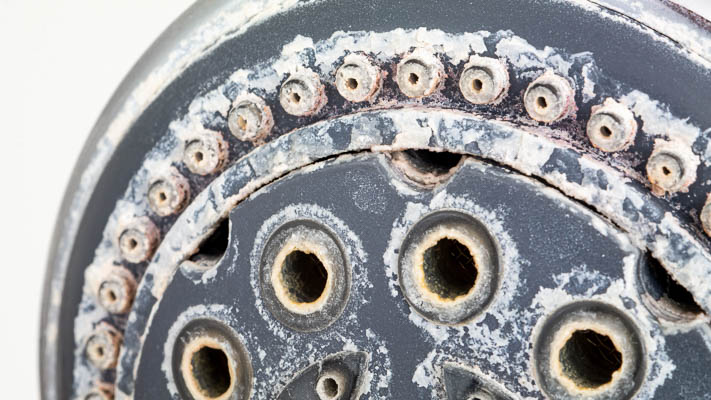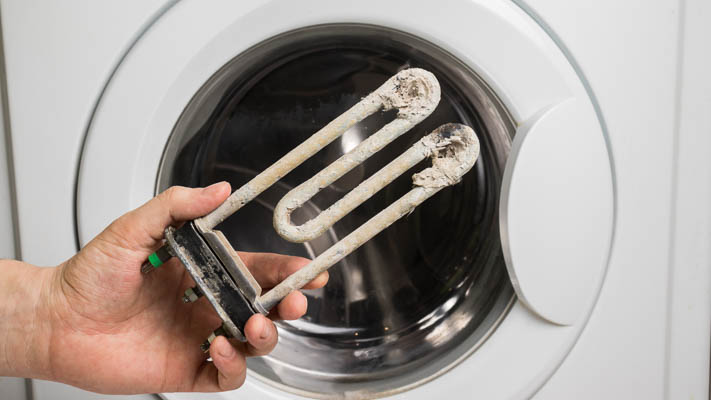What Is Hard Water
Hard water is water with high levels of dissolved minerals, mainly calcium and magnesium, which it absorbs as it flows through soil and rock layers. In contrast, soft water has lower levels of these minerals.
It's important to differentiate between hard water and alkaline water. Hard water often has higher alkalinity because of the calcium and magnesium carbonates it contains, but water hardness is mainly about mineral content. On the other hand, the pH level of water indicates whether it is acidic or alkaline.
Alkaline water has a pH level greater than 7, indicating it is more basic, while acidic water has a pH level lower than 7. Although the presence of dissolved minerals, especially calcium and magnesium, can affect water pH, water hardness and pH are distinct properties that are independent of each other.
Is Hard Water Harmful To Health?
Generally, hard water isn't harmful to your health when consumed. However, it may cause minor skin irritation or dryness due to the reduced effectiveness of soaps and detergents.
This is particularly common for people with sensitive skin. Nonetheless, these effects are typically mild and can often be managed with moisturizers or alternative skincare products.
Although hard water isn't a health hazard, it can affect your home's plumbing systems in various ways.
Why Is Hard Water Bad For Plumbing?
Hard water poses several challenges to plumbing systems due to the presence of dissolved minerals. These minerals can lead to the formation of scale deposits inside pipes and fixtures, which can have detrimental effects on plumbing infrastructure.
Scale buildup can restrict water flow and reduce water pressure within pipes, resulting in decreased efficiency and potential blockages. This can lead to issues such as low water pressure, reduced water flow from faucets and showerheads, and in severe cases, complete pipe blockages.
The accumulation of scale deposits can impact the lifespan and performance of household appliances, such as water heaters, dishwashers, and washing machines. As these appliances heat water, the minerals in hard water can coat internal components, reducing their efficiency and potentially causing mechanical failures.
Get your free estimate today
With over 75,000 repipes completed, we've perfected our One-Stop Repipe™ for your home.
How To Test For Hard Water At Home?
There are several methods to test for hard water in your home. Here's a step-by-step guide on how to test for hard water:
- Visual Inspection: Start by examining your plumbing fixtures and household appliances for signs of hard water. Scale buildup on faucets, showerheads, and kettle heating elements is a common indicator of hard water.
- Water Hardness Test Strips: These strips are readily available at hardware stores or online. To use them, dip one into a sample of your water for a few seconds, then remove and compare the color change to the provided chart. Varify provide professional-grade water hardness test strips.
- DIY Soap Test: Another simple method involves testing the lathering ability of soap in your water. Take a clear plastic bottle and fill it halfway with water from your tap. Add a few drops of liquid soap and shake the bottle vigorously. If the water turns cloudy and produces minimal suds, it's likely hard water. In contrast, soft water will produce more lather with less soap.

By performing these simple tests, you can determine whether you have hard water and take appropriate measures to address any issues it may cause.
How To Stop Hard Water Buildup
One way to prevent hard water buildup is by installing a water softener system. Water softeners work by removing calcium and magnesium ions from the water through a process called ion exchange, replacing them with sodium or potassium ions. This helps reduce the formation of scale deposits in plumbing systems and appliances, prolonging their lifespan and efficiency.
However, if scale buildup has already occurred due to hard water, it cannot be removed, and the damaged pipes will require replacement. To prevent future hard water buildup, it's crucial to use materials that are more resistant to the effects of hard water.
PEX (cross-linked polyethylene) piping is known for its durability and resistance to corrosion, making it an excellent choice for plumbing systems in areas with hard water. While all piping materials are affected by hard water (including PEX), PEX tubing is generally more effective against scale buildup.
Unlike traditional metal pipes, PEX is less susceptible to scale buildup compared to other piping materials, including trusted materials such as copper pipes, which can corrode when exposed to hard water, potentially causing pinhole leaks.
By taking proactive measures to address hard water buildup through repiping with PEX, you not only enhance the resistance of your home's plumbing to hard water but also ensure long-lasting plumbing for years to come.
Get a Quote for Repiping Your Pipes Damaged by Hard Water
Here at Repipe Specialists, we've fully replaced plumbing damaged by hard water in thousands of homes across the USA with modern Uponor PEX tubing. We continually get positive customer feedback from customers about their whole home repipe experiences. We often exceed their expectations on:
- Speed: Our repipe crews typically complete a repipe in a day, returning on another day for wall patching.
- Convenience: Through our One-Stop Repipe™ Process, we handle everything from permits, to wall patching, to inspections.
- Cleanliness: Our crews are trained to protect your home while working (we cover all surfaces with protective sheeting), and to clean up fully at the end of each day.
- Peace of Mind: Repipe Specialists is a fully licensed plumber in every state we operate in, and we back all of our repipes with a lifetime warranty.
- Financing programs: To help take the sting out of unplanned repipe expenses, we offer several financing programs.
- Price: As a specialist that performs hundreds of repipes a week, we can deliver high quality repipes at a lower cost vs generalist plumbers. We have an article that covers repipe cost factors in detail. Our quotes typically range from $4,500 to $15,000 depending on the size and complexity of your project.
Schedule a free in-home consult, and one of our local repipe consultants will explain all your repipe options and provide you with a written, fixed-price quote. Fix hard water damage in your plumbing, repipe with PEX.

